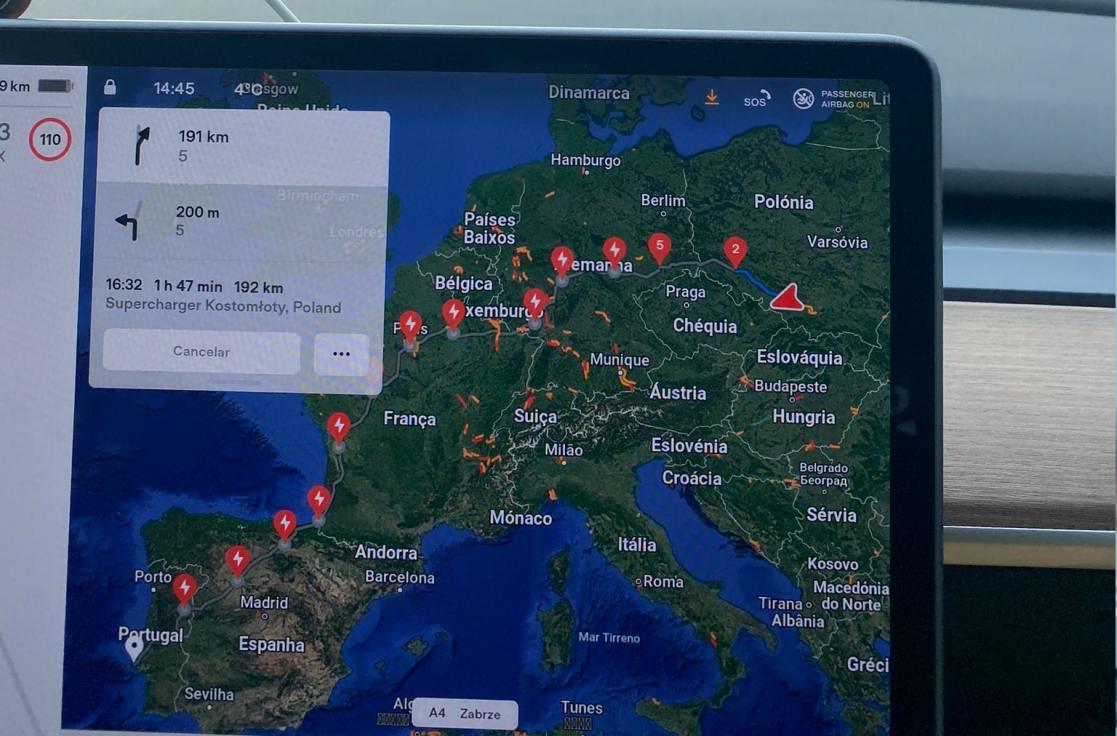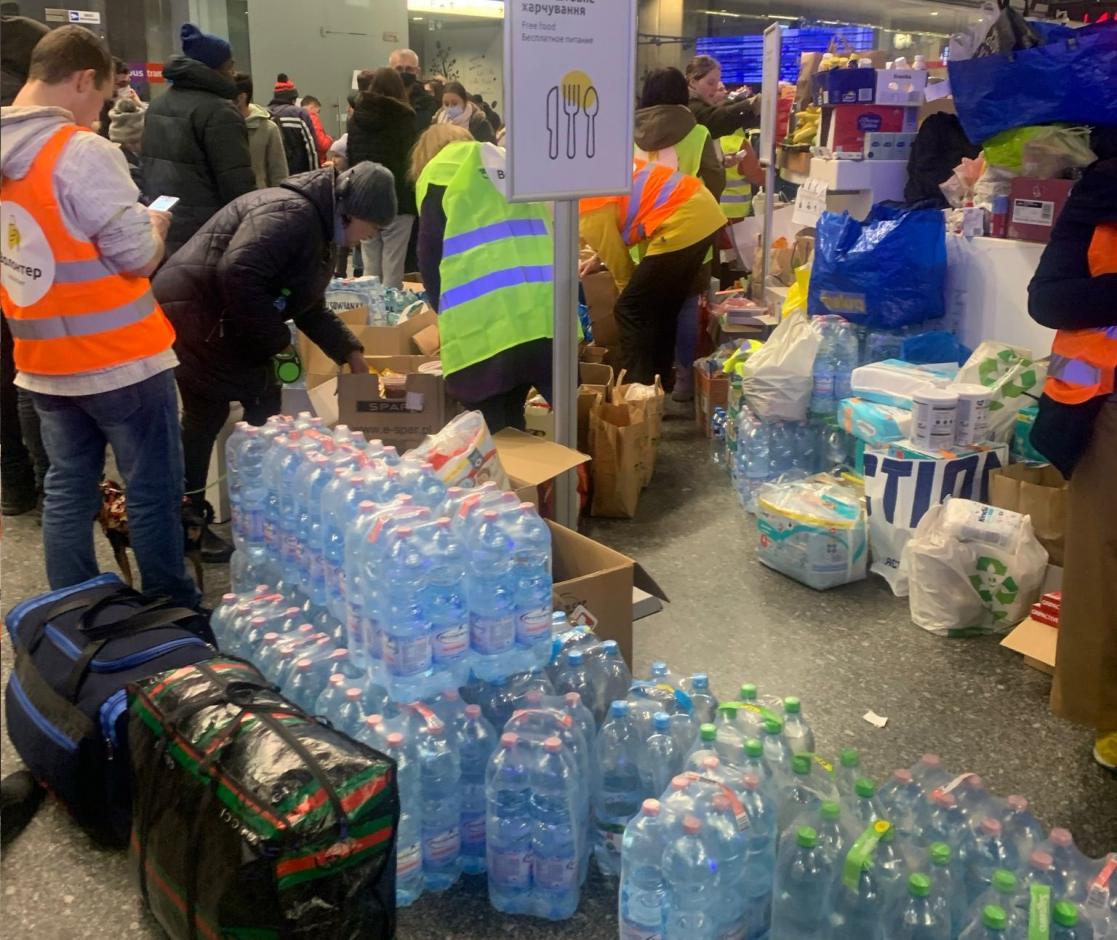#EUSolidarity: from Portugal to Poland, civil society is united

© Sónia Morais Santos
For Sónia, it is hard to describe a normal day. She is a digital influencer, always looking for inspiration and interesting life stories to tell. She is also a mother of four children and has two dogs. Monotony is a hard word to find in her vocabulary. So one must pose the question: how does a busy woman in the other corner of Europe travels all the way to Poland to help those who need it the most?
‘It is impossible not to be moved with all that is happening’ says Sónia. ‘I jumped into a reality totally different from my own and it moved me because it is Europe. I was born with the idea of a united Europe for peace and I think we were all caught by surprise in seeing war in Europe’.
Decision to take action
The work of European volunteers has been of tremendous value. From collecting goods, volunteering in distribution centres, opening the doors to their houses for people and pets seeking refuge, among many other untold actions of kindness. Unrested by all the news on the topic, Sónia managed to find a civil society initiative called ‘humanitarian caravan’, transporting food and other essentials to Poland and transporting people who seek asylum in Portugal. She found out about the initiative, managed to get a van and only afterwards shared the news with her husband who fully supported and joined her in this endeavour.
The attention given by her family and friends was essential. At the end of the day, more friends joined her and they contributed with three more cars to the caravan.
Hands on the wheel and hearts in their mouths
They left Lisbon on the evening of the 1st of March, preferring to sleep between journeys to ensure they would arrive safely to their destination. In each car, the tension was growing, as Portugal got further and further behind and the destination was getting closer. Sónia shares how she was trying to prepare herself for the worst possible scenario so that she would feel less affected by what she would encounter.
One of her friends joining the caravan, who had been a scout, suggested taking walkie-talkies with them: these ended up being essential to communicate possible route changes and to keep in touch with the other cars.

© Sónia Morais Santos
The stops of the journey were set by the organisation of the humanitarian caravan. They were the ones who identified the warehouse in Poland receiving essential goods where Sónia and her group were headed, after more than 3000km driving. ‘The warehouse was filled with formula, milk, clothing… It was at this moment that we got the sensation that it was real, it was truly taking place’, tells Sónia. The owner of the warehouse is a Ukrainian living in Poland, who insisted on offering lunch to whoever was there to help.

© Sónia Morais Santos
Next mission: looking for people seeking asylum in Portugal
As soon as the cars and vans were empty, it was time to move to the next objective of the trip: picking-up refugees who planned to seek asylum in Portugal. All drivers knew that this would be the most difficult part: the confronting with thousands seeking help and only a few places available in each car. The role of the organisation of the initiative was once again essential: they had already identified a group of people to take part in the journey to Portugal, many having relatives living in the country.
One of the cars drove some extra 400km in Poland to pick up four children, left alone in front of a supermarket close to the border of Poland and Ukraine. As their parents are nurses and had to go back to Ukraine, but they wanted to ensure their kids would be safe. The children were later welcomed in a convent nearby, which flagged the situation to the organisation, and it was here where the volunteers met them.
Returning for some, new start for others
The three cars, plus another one who joined their group in Warsaw, managed to pick up twelve people. In total, the first journey of the humanitarian caravan brought around seventy people to Portugal.
Not everyone they were taking to Portugal spoke English, so the group made sure they always had someone who understood the language in each car, to guarantee that there would be a way to communicate.
Two sisters, 24 and 35 years old and another woman, in her sixties travelled in Sónia's car. ‘The first moments were very tough. You can feel deep suffering’, says Sónia, adding that it was through a song that they were able to break the ice. As Sónia made them listen toa song from Portugal, they shared the Eurovision song ‘1944’ by the Ukrainian singer Jamala. The song that speaks of the deportation of Crimean Tartars in the 1940s struck a chord in all passengers and the moment of shared compassion and empathy led the way for the rest of the trip.
The support of the community following their initiative allowed volunteers to provide a bit of comfort to those who were travelling to a new country and a new life. When they arrived in Portugal, accommodation was already assured for all refugees and Sónia recalls the emotion felt when the two sisters were welcomed by their mother and aunt: ‘The way they were embraced with tears of relief, and how they embraced us as well… We felt like we had saved a family’.
All actions, whether big or small, create an effect in someone’s life.
When reflecting on the impact of this initiative, Sónia thinks about the questions her son posed her when they arrived: ‘How do you feel after all you have seen? Do you feel like you have fulfilled your purpose or…?‘. She is well aware that she may not have changed the world, but she made the difference for those she helped to bring safely to Portugal: ‘Our group brought to Portugal twelve people. It may not be much in the sea of people that still need support, but it is something and it will mean the world to twelve families’.
Sónia’s testimonial gives a voice to thousands of people who, since the start of the invasion of Ukraine, have been dedicating their time and putting all their heart in the support of others. On this, civil society and institutions are together.
The European Union has been working on all fronts to support Ukraine with assistance, humanitarian aid and civil protection. The EU also agreed to activate the Temporary Protection Directive, to provide quick and effective protection to those fleeing from the conflict, being Ukrainian or non-Ukrainian citizens.
Find out more:
Factsheet: Temporary protection and guidelines for border checks





